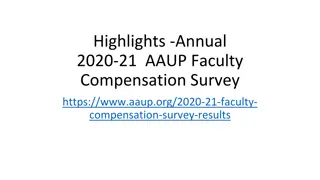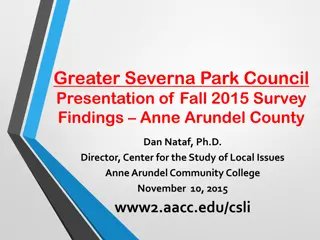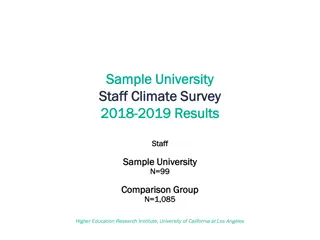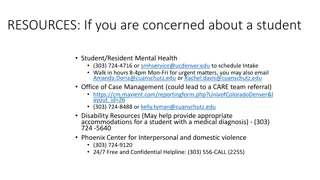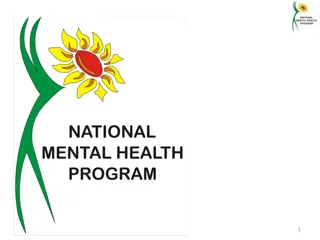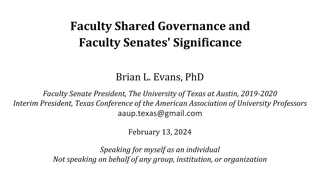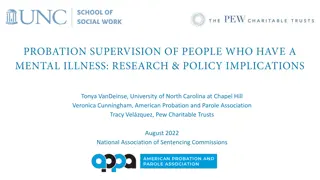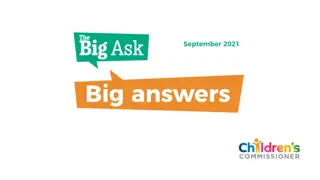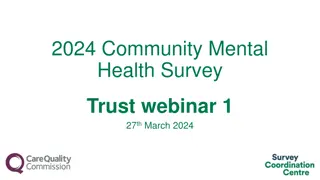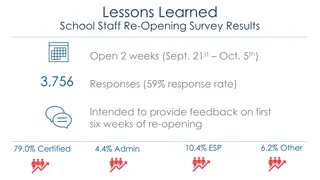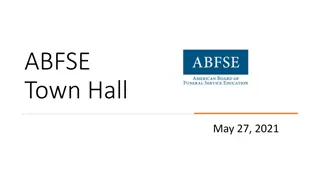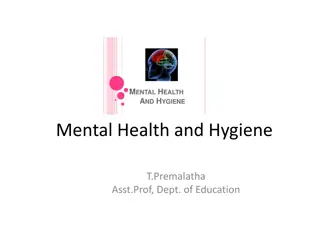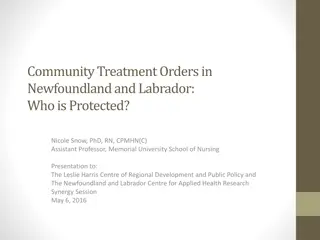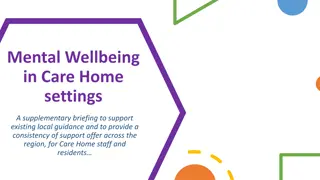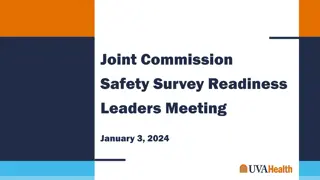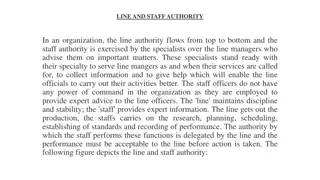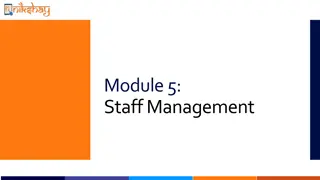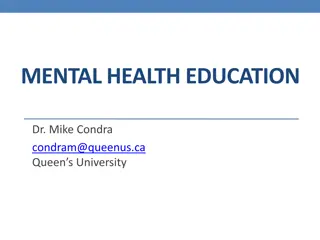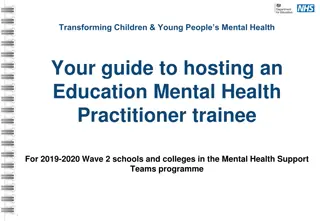Staff/Faculty Mental Health Survey Insights Fall 2020
A survey conducted by NKU's Mental Health Advisory Group in Fall 2020 gathered insights from 397 staff and faculty members regarding their awareness of mental health resources for students, perceptions of student concerns and barriers, and interest in receiving mental health-based professional development. Key findings include varying levels of awareness, top concerns like stress and anxiety, identified barriers including stigma and financial constraints, and a moderate interest in professional development opportunities.
Download Presentation

Please find below an Image/Link to download the presentation.
The content on the website is provided AS IS for your information and personal use only. It may not be sold, licensed, or shared on other websites without obtaining consent from the author. Download presentation by click this link. If you encounter any issues during the download, it is possible that the publisher has removed the file from their server.
E N D
Presentation Transcript
Staff/Faculty Survey: Overview of Findings Survey Distributed Fall 2020
Participation Participation Recognizing that promoting student success requires attending to the mental health and wellness of the staff and faculty members with whom they engage, NKU s Mental Health Advisory Group (MHAG) invited staff and faculty to participate in a survey aimed at exploring their awareness of and experiences with mental health & well-being. The survey, conducted during November 2020, consisted of two main parts: one aimed at gaining information staff/faculty knowledge of resources available for student mental health, and another intended to gain insights into staff/faculty s individual sense of wellness.
Demographics Demographics Total participants: 397 Staff: 195 Faculty: 183 Chose not to answer: 19 Tenured/tenure-track): 110 Non-tenure track): 73
Part I Staff/faculty knowledge of resources available for student mental health
How aware are you of where to receive support for students with mental health concerns? 2% 2% 3% 46% Well aware Somewhat aware 47% Neither aware nor unaware Somewhat unaware Extremely unaware
Perception of student concerns Perception of student concerns To what extent do you believe the following to be a pressing concern in your interactions with students? Top three responses: Stress (98% of staff and faculty respondents agreed) Anxiety (93% of respondents agreed) Depression (86% of participants agreed)
Perception of student barriers Perception of student barriers To what extent do you believe the following factors serve as barriers to the provision of mental health services for our students? Top three responses: Mental health stigma (80%) Inability to pay for services (76%) Cultural barriers associated with diverse students (73%)
Would you be interested in receiving mental health-based professional development? 3% 8% 35% 18% Definitely yes Probably yes May or may not Probably not Definitely not 36%
Preferences in professional development Preferences in professional development In terms of mental health-based professional development aimed at helping students, I would interested in receiving: Resources (37%) Knowledge acquisition (32%) Skills training (31%)
Professional development priorities Professional development priorities Please assess the importance of receiving additional knowledge or skills training in these specific areas: Top five responses: Recognizing signs, symptoms of mental health issues(37%) Understanding, engaging the unique mental health concerns of Underrepresented Minority students (90%) Procedures, practices for referring students (89%) Strategies for creating safe, supporting, and welcoming classroom environments (84%) Training in engaging, interacting with students (82%)
Part II Staff/faculty well-being
In the past 12 months, I could have benefited from help for concerns such as feeling sad, blue, anxious or nervous. 13% 27% 11% Strongly agree Somewhat agree Neither agree nor disagree 18% Somewhat disagree 31% Strongly disagree
When asked about their own mental health: When asked about their own mental health: 90% of staff and faculty indicated feeling tired or little energy at least once each week 83% reported feeling down at least once a week 66% reported feeling as if they re letting others down at least once per week
When asked about their own mental health: When asked about their own mental health: 85% of faculty and staff reported becoming irritable or easily annoyed at least once per week 83% indicated feeling nervous, anxious, or on edge at least once a week 79% disclosed worrying too much about different things at least once each week 78% admitted struggling to relax at least once per week


